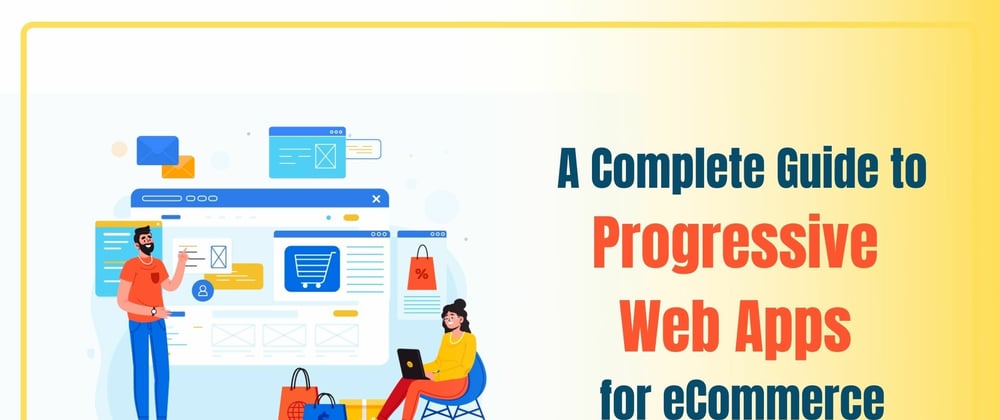Progressive Web apps, you've definitely heard of them or at least have a vague concept of them if you work in eCommerce. PWAs are now happening, and businesses are using them to provide the best user experience possible.
With rising consumer expectations, Progressive Web Apps (PWAs) will be the primary ecommerce endeavor for the coming year. The PWA platform aids eCommerce brands in boosting user interactions. Brands can grow three times faster than eCommerce sites. That’s the reason today we came with this ultimate guide to progressive web apps for eCommerce.
What are PWAs?
Progressive web apps are a way to make websites look and feel like mobile apps. It blends the finest of native apps and website characteristics to produce a web app. The main goal is to create a native app-like user experience on all platforms.
PWAs are:
- Reliable
Without a network connection, they provide a quick and reliable user experience.
- Super quick. Slow sites lose customers, resulting in lost sales. PWAs load swiftly and respond promptly to user input. A faster website improves conversion, user experience, and retention.
Why Progressive Web Apps for Ecommerce?
PWA has so much to offer, and the ways it can benefit your company are numerous. The PWA's modest and compact size allows for a faultless user experience with no significant processing difficulties. Progressive web apps are infectiously attractive to force users to stay on the website longer even if they don't intend to buy anything. Here are some reasons why Progressive web apps for eCommerce are the best -
Saves Time and Money
Because PWAs are built on reusable code, developers can reuse it. A programme requires a separate code for each platform. Your app must also meet particular requirements to be approved by both platforms.
Bridging the Customer-Merchant Gap
No need to download an app with a Progressive Web App. Thus, it reduces the cognitive strain that consumers have while downloading apps. Users are now more conscious of their app count. Keeping a small number of mobile apps is the current trend due to restricted mobile storage.
Users don't want to download more apps if they already have a lot. Having too many apps slows down the phone. As a result, mobile-first firms are adopting PWAs faster.
Saves Data and Storage
Users constantly save internet and data costs, which is vital for eCommerce businesses. PWAs save eCommerce businesses in this regard. When an app takes up to 50MB of phone memory, a PWA merely takes up a handful.
Free updates and no app store fees
Automatic updates in a PWA work like regular website updates, with the server doing all the work. This gives consumers an updated website application.
Using a Progressive Web App eliminates the need to rely on app stores and their rules. While a native app may not be visible to users in app stores, search engines can help enhance a PWA's presence.
Progressive web apps for eCommerce Challenges
PWAs aren't as popular as web pages or applications. So, you would have to wait a while to connect with your customers.
PWA combines the internet with native apps. So their design and operation are difficult to create. The ability to code and create websites is required.
Caching is required for PWA, although it has significant drawbacks.
PWAs don't have access to social accounts, connections, or media.
Conclusion
A PWA is a great alternative if you want to reach everyone and maximize mobile conversions. Big-time online firms have adapted to PWAs, making it necessary for any mobile-first business to do so as well. If you want to create a PWA-enabled eCommerce store, contact a business that offers PWA development and describe your goals.







Top comments (0)